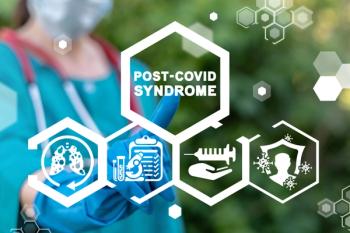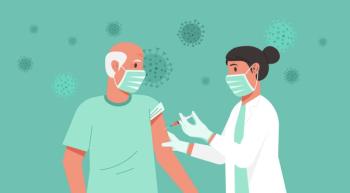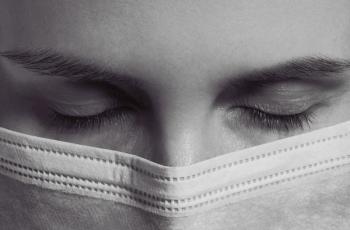
The Mental Health Pandemic Calls for a Strategic Initiative that Emphasizes Integrative Health Care
While COVID-19 has certainly caused a physical health pandemic, it is taking a heavy toll on mental health too, to the point that strategic action is clearly needed.
It is likely that a large percentage of the global population will eventually be infected with SARS-CoV-2 (the virus that causes coronavirus 19 [COVID-19]), resulting in potentially serious health and mental health consequences. An epidemiologic study done in China at the start of the pandemic found that roughly half of adults in the general population were depressed, and 1 in 5 reported high levels of anxiety.1 Individuals who spent the most time on social media websites were almost twice as likely to report depressed mood or anxiety. The crisis is being made worse by a disruption in social support networks during enforced social distancing. Individuals who were already struggling with mental illness before COVID-19 are now facing even greater challenges. These circumstances may worsen in the context of widespread poverty and hunger, entrenched disparities in health care among minorities and the underserved, and an overall decline in access to health care resulting from economic breakdown in the wake of COVID-19.2
In the absence of a well-coordinated strategic initiative aimed at mitigating the physical and mental health impacts of COVID-19, a global epidemic of chronic disease, mental illness, and increased mortality may emerge as long-term consequences of stress-induced medical and psychiatric disorders related to widespread unemployment and loss of employer-based health insurance.3 This article will review complex mental health challenges created by the COVID-19 pandemic, address the limitations of conventional mental health care, comment on the potential benefits of integrative mental health care for enhancing resilience and treating specific mental health conditions, and propose a wide-ranging strategic initiative.
History as prologue
Even after antivirals and vaccines are developed and contain the spread of the viral pandemic, a mental health pandemic could go on for years, fueled by anticipated long-term economic and social impacts. High unemployment rates and declining financial security during recessions have been historically associated with increased suicide rates that may continue 5 to 6 years after a recessionary period has ended.4 During the decade of the Great Depression from 1929 to 1939, the suicide rate rose from 13.9 to 17.4 per 100,000. Traumatic memories of surviving years of hardship during the Great Depression resulted in high rates of anxiety and depressed mood for generations. Economic downturns disproportionately affect the lower income segment of the population, which in the United States are predominantly people of color, but all socioeconomic groups are negatively impacted.4 More recently, the Great Recession of 2007 through 2009 led to a significant increase in rates of cardiovascular disease, cancer, and mental health problems, and worsened the ongoing epidemic of opioid and alcohol abuse.5 Based on history, it is likely that widespread unemployment and food and housing insecurity resulting from economic disruption in the wake of COVID-19 will have similar large-scale impacts on health and mental health, especially among low-income workers and minorities.3
Neuropsychiatric sequelae of COVID-19 infection
In addition to mental health problems caused by the economic fall-out of the pandemic, emerging research findings suggest that many individuals who become seriously ill with coronavirus infections experience severe neuropsychiatric complications. A systematic review and meta-analysis of 72 studies on acute and long-term psychiatric complications associated with coronavirus infection—including severe acute respiratory syndrome (SARS), Middle East respiratory syndrome (MERS), and COVID-19—found evidence for delirium in the acute stage of illness, and depressed mood, anxiety, fatigue, and PTSD in the post-illness stage.6 Following recovery from SARS and MERS, over 15% of patients reported persisting insomnia, traumatic memories, mood swings, and impairments in concentration and memory lasting between 6 weeks and 3 years. These findings support a multi-factorial etiology of the mental health impacts of infection with coronaviruses, including direct effects of viral infection on the brain, neuropsychiatric sequelae of cerebrovascular disease, hypoxia and immune-mediated responses resulting in a hyper-inflammatory state (ie, a cytokine storm).
A study done in April 2020 found that a high percentage of hospitalized adults (N=153) with a median age of 71 being treated for COVID-19 experienced neuropsychiatric complications resulting from delirium.7 Cerebrovascular events, including ischemic and hemorrhagic stroke, represented the most common complication, occurring in 62% of patients. Acute alterations in personality, behavior, or cognition was the second most common neuropsychiatric complication, taking place in 31% of hospitalized patients. Almost 60% of individuals with altered mental status fulfilled diagnostic criteria for a specific psychiatric diagnosis. Of the patients with new onset psychiatric disorders, 43% had psychosis, 26% had a dementia-like syndrome, and 17% had a mood disorder. Roughly half of patients who experienced alterations in mental status during hospitalization were aged 60 years or younger. Significantly, 92% reported no previous history of mental illness; however, the authors commented that they were not able to rule out the possibility that psychiatric disorders were present but had not been diagnosed before becoming infected with COVID-19. It is important to note that at the time of writing there are limited data on the acute neuropsychiatric effects of COVID-19, and no data on the prevalence of neuropsychiatric complications in the post-illness phase.
Large prospective studies are needed to determine the prevalence of neuropsychiatric disorders during and following hospitalization for treatment of COVID-19. These will help us to better understand how COVID-19 results in a range of neuropsychiatric complications, to determine how long neuropsychiatric symptoms continue following the acute stages of viral illness, how best to treat neuropsychiatric complications, and to investigate whether those individuals with milder cases of COVID-19 (ie, who are not hospitalized) are at risk of developing similar neuropsychiatric complications.
The direct effects of COVID-19 on brain function are probably compounded by adverse psychological effects such as traumatic memories of intubation and other medical interventions in hospitalized patients, the mental health impacts of prolonged social isolation, anxiety over being infected by a potentially fatal illness, and concerns about infecting others.8-10
Social media: bad, irrelevant, and sometimes helpful
Widespread social isolation in combination with increased reliance on social media for information on COVID-19 may be leading to an elevation in mental health problems globally.11 Due to fake or misleading news reports, many individuals are ignoring recommendations for social distancing, increasing their risk of infection and potentially serious neuropsychiatric complications of COVID-19. At the same time, many are taking extreme measures to avoid any social contact, resulting in feelings of profound isolation, anxiety, and depressed mood. Because of widespread dissemination of unverified or downright fake reports that confuse the public, fear and feelings of loss of control, millions of individuals are relying heavily on social media while sheltering in place. There is growing concern that this trend may result in increased risk of depressed mood, anxiety, PTSD, and other mental health problems.12 Individuals who have recently lost their jobs, ethnic minorities, and the underserved may be at even greater risk.
Although widespread exposure to social media is arguably causing enormous confusion, and worsening already high levels of depression and anxiety, social media platforms can also play important roles during the COVID-19 pandemic. They can educate the public about appropriate safe measures, enhance social support and connectedness, and improve resilience.13 Examples include use of social media platforms to develop and disseminate expert resources aimed at enhancing resilience such as exercise, healthy diet, regular sleep, and engaging in meditation or a mind-body practice.
Call for a strategic initiative and recommendations
Responding to these unprecedented circumstances, in May 2020, the United Nations issued a policy brief: “COVID-19 and the Need for Mental Health Action.”14 The report recommended 3 broad areas of action:
- Apply a whole-society approach to promote, protect, and care for mental health
- Ensure widespread availability of emergency mental health and psycho-social support
- Support recovery from COVID-19 by building mental health services for the future
The COVID-19 pandemic makes the need to address the limitations and inequities of mental health care policies and practices even more urgent. Developing and implementing programs on a large-scale aimed at enhancing resilience and treating individuals struggling with the mental health consequences of COVID-19 deserves the same urgent national and global priority that is being assigned to developing and testing vaccines and antivirals. The highest priority should be given to populations at highest risk, including the unemployed, low-wage workers, African-American individuals, and Hispanic individuals.3 A well-coordinated strategic initiative is needed to restore millions of people to good mental health and will be an essential step in re-starting stalled economies globally and in the United States.
Essential first steps in developing a comprehensive national strategy should include:
- Tracking prevalence rates of depression, anxiety, PTSD, and other mental health problems that are taking place in response to the economic and social stresses caused by the pandemic and among individuals who experience neuropsychiatric sequelae following infection with COVID-19
- Estimating unmet treatment needs, focusing on underserved populations
- Prioritizing treatment of mental health problems that are most prevalent and severe
- Developing and implementing a systematic program of interventions and resources that will adequately address needs
The need to re-think limitations of conventional mental health care
In order to be both realistic and effective, a strategic initiative must take into account constraints on mental health care services in the context of a severe economic downturn that has resulted in high rates of joblessness and loss of health benefits among millions of individuals who need care. An equally important and urgent planning task involves identifying those conventional and CAM approaches that are effective, affordable, and widely available for enhancing resilience and treating specific mental health problems. All 3 criteria will be essential in order to successfully implement and scale-up a broad-based national strategy.
Implementing resources that are both effective and cost-competitive calls for a review of limitations of the existing model of mental health care and available conventional treatments of mental health problems. In response to the limitations of the current model of care, in collaborative care patients are seen by a team of primary care providers and behavioral health clinicians who address medical and mental health problems in 1 visit. Studies show that collaborative care is more cost-effective than usual care in all categories measured, including medication costs, inpatient, outpatient, and mental health specialty care, as well as for the management of depressed patients with comorbid, medical disorders, severe anxiety disorders, and serious chronic mental illness.15-20
Although integrative treatment strategies incorporating both CAM and conventional biomedical modalities may initially be costly, downstream savings can be achieved when such integrative strategies yield positive long-term outcomes.21,22 Systematic reviews of economic modeling studies on comparative cost-effectiveness of conventional versus CAM or integrative treatments support that CAM or integrative treatment is cost-effective and may result in cost savings in some cases.23 Finally, higher upfront costs of CAM or integrative health care may be offset by improved work productivity and increased future quality adjusted life years.23
The need for effective and affordable CAM and integrative interventions
Many widely used conventional treatments have limited effectiveness, well documented safety problems, and are unaffordable to large numbers of individuals who might otherwise benefit from them, including a growing number of individuals who have recently lost their jobs and no longer have health insurance. Initiatives aimed at enhancing psychological resilience and treating mental health problems should incorporate conventional and CAM approaches that are effective, safe, affordable, and cost-effective. Examples include a regular mindfulness practice for depressed mood, anxiety, insomnia, and PTSD. The National Center for Complementary and Integrative Health is spear-heading a research initiative aimed at investigating non-pharmacologic approaches to stress management in relationship to COVID-19. Topics of specific interest include mindfulness and mind-body approaches that can be used remotely (ie, via apps) to mitigate stresses related to social distancing, and to address deleterious mental health impacts experienced during the active phase and recovery from COVID-19 infection. Other potentially beneficial non-pharmacologic approaches include exercise, nutritional advice, and select natural supplements.
The need for a methodology for developing expert integrative care guidelines
A rigorous methodology for developing expert guidelines for conventional, CAM, and integrative interventions is urgently needed. Along these lines, the RAND Corporation together with the Samueli Institute have developed an efficient and cost-effective approach for conducting expert panels based on work done at the National Institutes of Health Consensus Development Conference and the Institute of Medicine.24 Each expert panel comprises 5 academics and 4 clinicians reflecting equal emphasis on clinical and research expertise. Expert panels use a streamlining approach called Rapid Evidence Assessment of Literature (REAL) to reduce time spent on literature review. The RAND methodology holds promise for reducing costs, improving cost-effectiveness, and reducing time needed to develop integrative protocols addressing the complex physical and mental health needs of individuals affected by COVID-19. This methodology can be equally applied to planning considerations pertaining to biomedicine and CAM modalities and may prove to be a valuable methodology for developing evidence-based protocols in integrative mental health care.
The need for innovations in technology
In addition to conventional and non-pharmacologic interventions, the COVID-19 pandemic is an important opportunity for the increasing use of technological innovations in mental health care. Examples include apps, intelligent chat-bots, and digital health platforms aimed at providing personalized psychological support; promoting resilience; and mitigating symptoms of anxiety, depression, insomnia, PTSD, and other mental health impacts of the pandemic.
The essential role of community education
Public education will be an essential tool for conveying accurate information about the role of lifestyle for enhancing emotional and mental wellness. Such health enhancement programs could be widely implemented in the workplace, schools, and communities. Carried out at a community level and coordinated by volunteers, such programs will achieve maximum buy-in and can probably be planned and implemented at little or no cost.
Whole Health Institute recently announced they are spear-heading an initiative to train peer-to-peer whole health coaches. This may be a useful model for a national initiative to train lay-healthcare coaches in every community. It could be emulated in other countries and have a global reach. More specialized programs also need to be developed to address more severe mental health problems such as PTSD, severe depressed mood, and severe anxiety among highly vulnerable populations including the elderly, veterans, and school-aged children.
The need to re-vision social media resources
As previously discussed, social media campaigns can play an important role for disseminating valuable information on lifestyle, enhancing resilience, and providing platforms for communities and health care providers to coordinate planning efforts. Social media interventions have been proven effective for changing perceptions and behaviors on a large scale25, and may become an important part of a coordinated national strategy for psychoeducation and enhancing resilience in the face of COVID-19. The authors of a recently published paper propose that large social media platforms such as Facebook and YouTube should take measures to carefully monitor content to mitigate the negative mental health consequences of fake news, graphic imagery, and inaccurate or distorted posts.11 A coordinated national program aimed at psychoeducation of the general public via social media platforms—even as the outbreak continues—may significantly reduce community spread of infection, enhance resilience, and mitigate the potential short- and long-term psychological impacts of COVID-19.11
The need for shared leadership
Successfully implementing an effective mental health care initiative will require shared leadership. It is time for the Department of Health and Human Services, the National Institutes of Mental Health, the American Psychiatric Association, the American Psychological Association, the Institute of Medicine, and experts in mental health care and integrative medicine to join forces and take proactive strategic measures in developing services and resources.
Summing up
I have argued that a broad range of resources and clinical services are needed to adequately address the anticipated mental health impacts of COVID-19, both for enhancing psychological resilience in healthy individuals and for treating the direct and indirect consequences of the pandemic on mental health. To ensure maximum effectiveness, cost-effectiveness, and availability, the COVID-19 mental health initiative should incorporate both conventional biomedical treatments and alternative approaches, be easily scalable, optimize the role of social media in education and public safety, emphasize community engagement, and be available at little or no cost to millions of Americans who have recently lost their jobs and their health insurance.
Dr Lake is a Psychiatrist in private practice in California and an Adjunct Fellow, National Institute of Complementary Medicine, Health Research Institute, Western Sydney University. His most recent book is
References
1. Gao J, Zheng P, Jia Y, et al. Mental health problems and social media exposure during COVID-19 outbreak. PLOS ONE. 2020;15(4):e0231924.
2. Ahonen EQ, Fujishiro K, Cunningham T, Flynn M. Work as an Inclusive Part of Population Health Inequities Research and Prevention. Am J Public Health. 2018;108(3):306-311.
3. Brenner MH. Will There Be an Epidemic of Corollary Illnesses Linked to a COVID-19-Related Recession? Am J Public Health. 2020;110(7):974-975.
4. Bhugra D, Bhui K, Wong SYS, Gilman SE, Brenner MH. Oxford Textbook of Public Mental Health. In: Social class and mental health: The impact of international recession and austerity. Oxford University Press; 2018.
5. Brenner M. The impact of unemployment on heart disease and stroke mortality in European Union Countries. European Commission. 2016. Accessed October 15, 2020.
6. Rogers JP, Chesney E, Oliver D, et al. Psychiatric and neuropsychiatric presentations associated with severe coronavirus infections: a systematic review and meta-analysis with comparison to the COVID-19 pandemic. Lancet Psychiatry. 2020;7(7):611-627.
7. Varatharaj A, Thomas N, Ellul MA, et al. Neurological and neuropsychiatric complications of COVID-19 in 153 patients: a UK-wide surveillance study. Lancet Psychiatry. 2020;7(10):875-882.
8. Brooks SK, Webster RK, Smith LE, et al. The psychological impact of quarantine and how to reduce it: rapid review of the evidence. Lancet. 2020;395(10227):912-920.
9. Mehta P, McAuley DF, Brown M, et al. COVID-19: consider cytokine storm syndromes and immunosuppression. Lancet. 2020;395(10229):1033-1034.
10. Wohleb ES, Franklin T, Iwata M, Duman RS. Integrating neuroimmune systems in the neurobiology of depression. Nat Rev Neurosci. 2016;17(8):497-511.
11. Amsalem D, Dixon LB, Neria YJJp. The Coronavirus disease 2019 (COVID-19) outbreak and mental health: Current risks and recommended actions. JAMA Psychiatry. 2020.
12. Neria Y, Sullivan GMJJ. Understanding the mental health effects of indirect exposure to mass trauma through the media. JAMA. 2011;306(12):1374-1375.
13. Merchant RM, Lurie N. Social media and emergency preparedness in response to novel coronavirus. JAMA. 2020;323(20):2011-2012.
14. United Nations. Policy Brief: COVID-19 and the Need for Action on Mental Health. May 13, 2020. Accessed October 15, 2020.
15. Unützer J, Katon WJ, Fan M-Y, et al. Long-term cost effects of collaborative care for late-life depression. 2008;14(2):95.
16. Katon WJ, Roy-Byrne P, Russo J, Cowley D. Cost-effectiveness and cost offset of a collaborative care intervention for primary care patients with panic disorder. Archives of general psychiatry. 2002;59(12):1098-1104.
17. Katon W, Russo J, Lin EH, et al. Cost-effectiveness of a multicondition collaborative care intervention: a randomized controlled trial. 2012;69(5):506-514.
18. Druss BG, Von Esenwein SA, Compton MT, Zhao L, Leslie DLJAJoP. Budget impact and sustainability of medical care management for persons with serious mental illnesses. 2011;168(11):1171-1178.
19. Grypma L, Haverkamp R, Little S, Unützer JJGhp. Taking an evidence-based model of depression care from research to practice: making lemonade out of depression. 2006;28(2):101-107.
20. Reiss-Brennan B, Briot PC, Savitz LA, Cannon W, Staheli RJJoHM. Cost and quality impact of Intermountain's mental health integration program. 2010;55(2):97.
21. Pelletier KR, Herman PM, Metz RD, Nelson CFJE. Health and medical economics applied to integrative medicine. 2010;6(2):86-99.
22. Herman PM, Craig BM, Caspi OJBC, medicine a. Is complementary and alternative medicine (CAM) cost-effective? A systematic review. 2005;5(1):11.
23. Herman PM, Poindexter BL, Witt CM, Eisenberg DMJBo. Are complementary therapies and integrative care cost-effective? A systematic review of economic evaluations. 2012;2(5).
24. Coulter I, Elfenbaum P, Jain S, Jonas WJBrn. SEaRCH™ expert panel process: streamlining the link between evidence and practice. 2016;9(1):16.
25. Thornicroft G, Mehta N, Clement S, et al. Evidence for effective interventions to reduce mental-health-related stigma and discrimination. 2016;387(10023):1123-1132.
Newsletter
Receive trusted psychiatric news, expert analysis, and clinical insights — subscribe today to support your practice and your patients.







